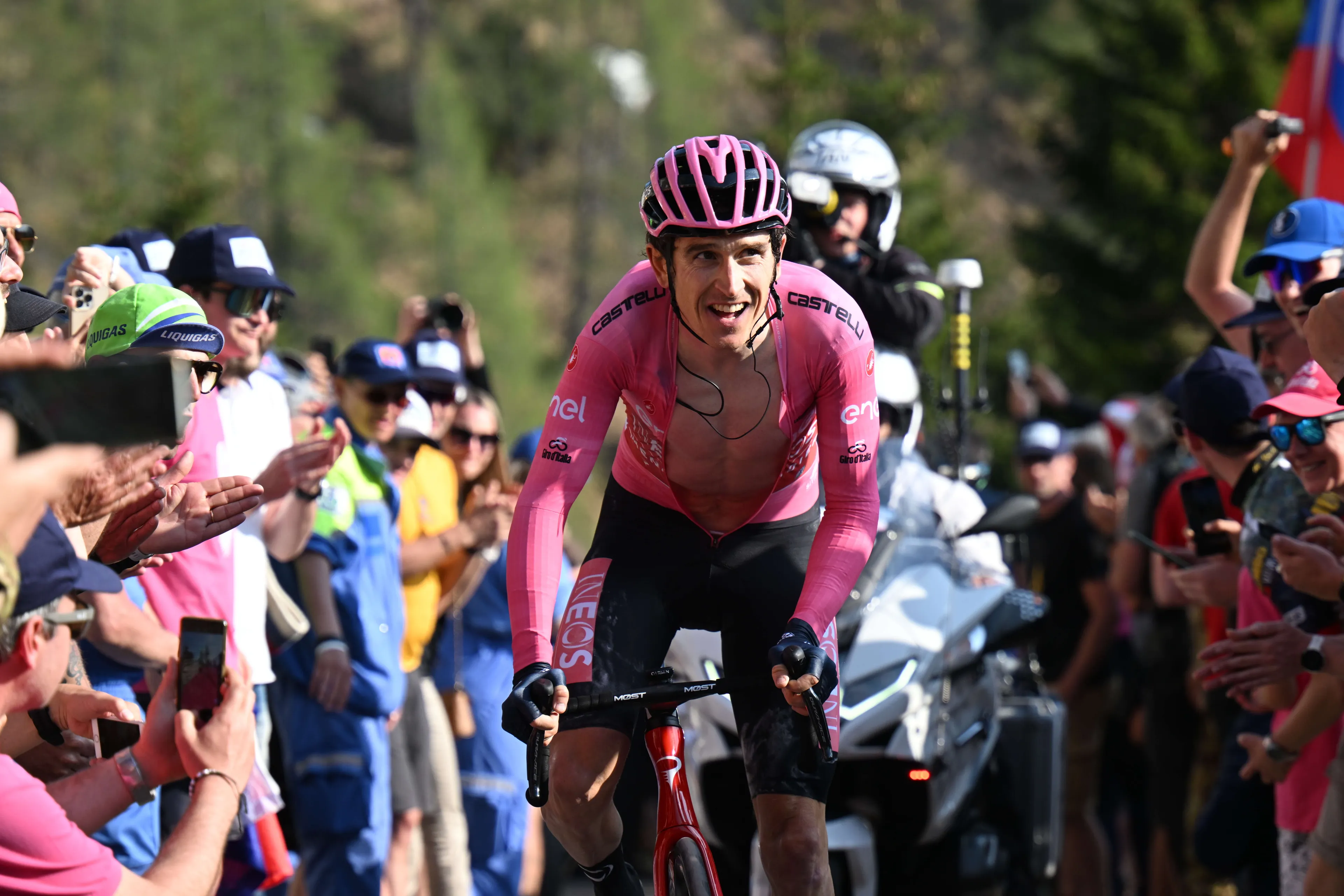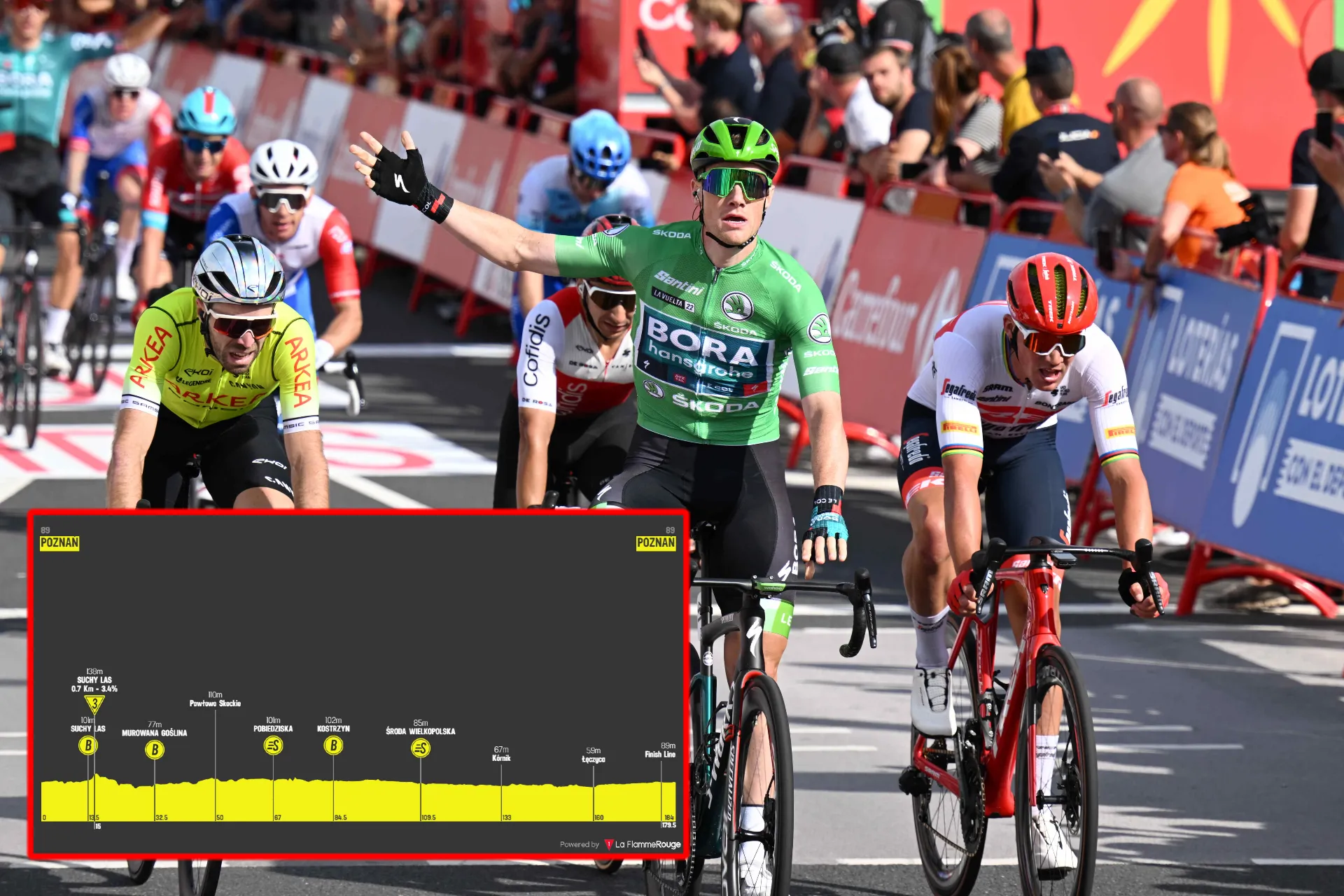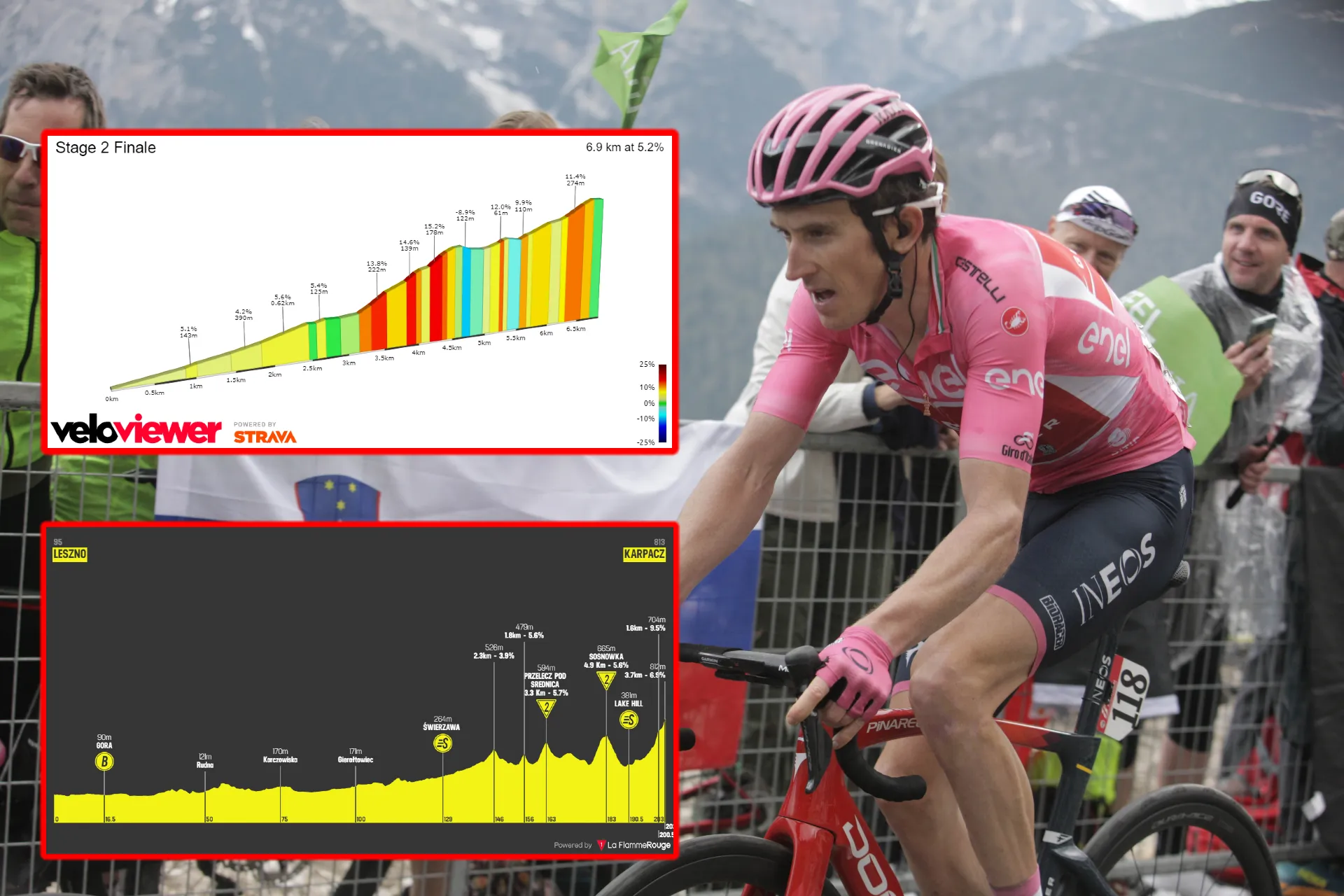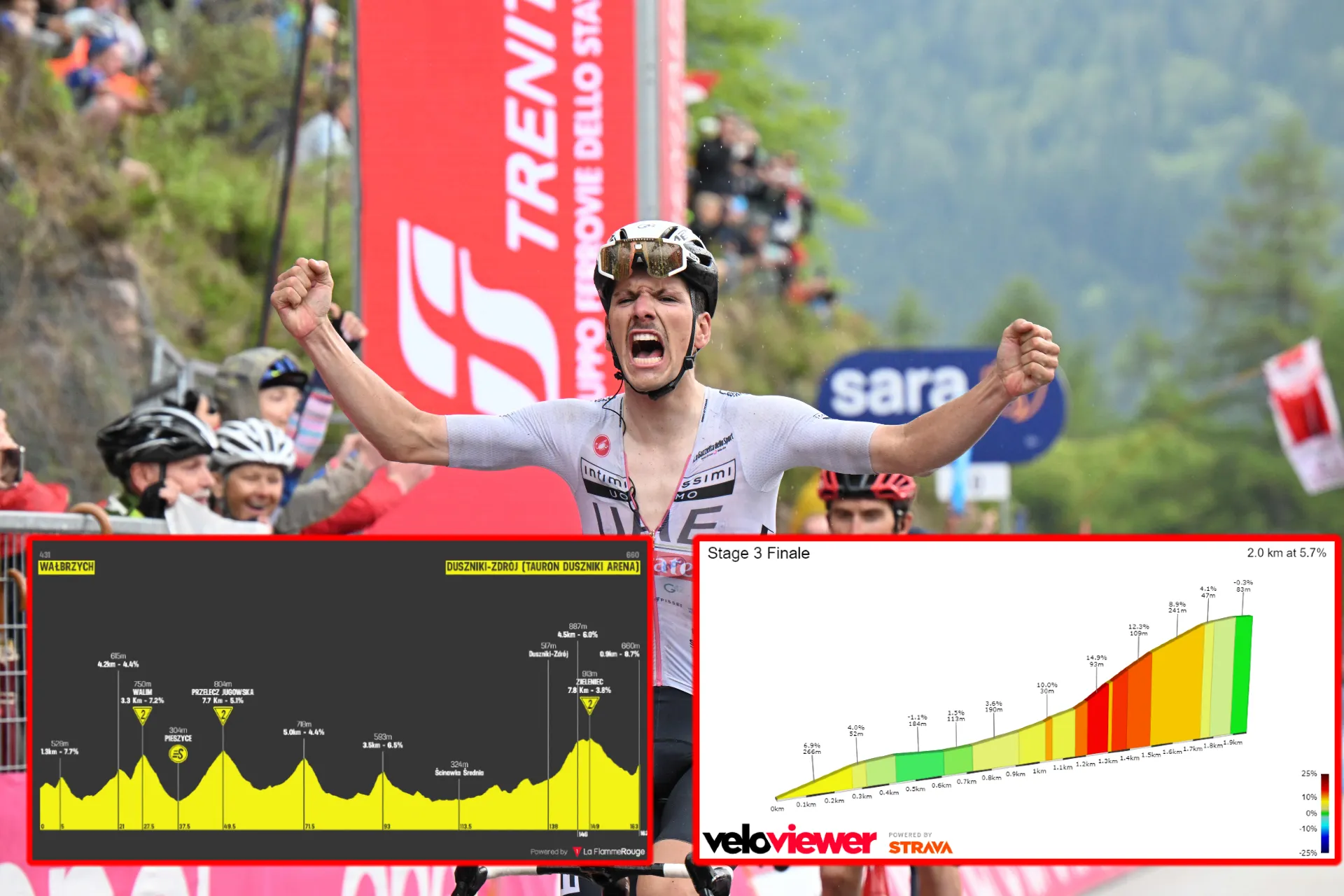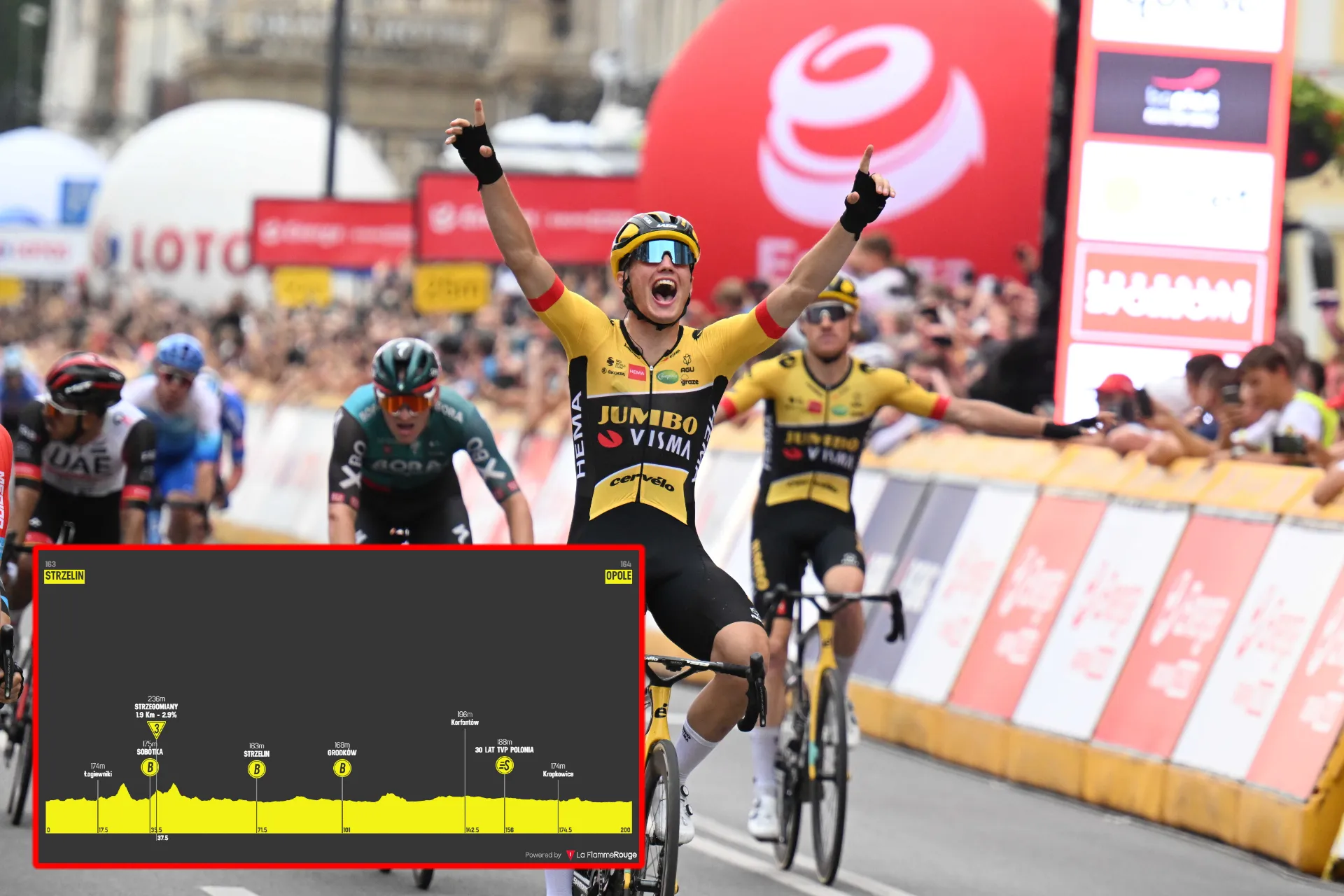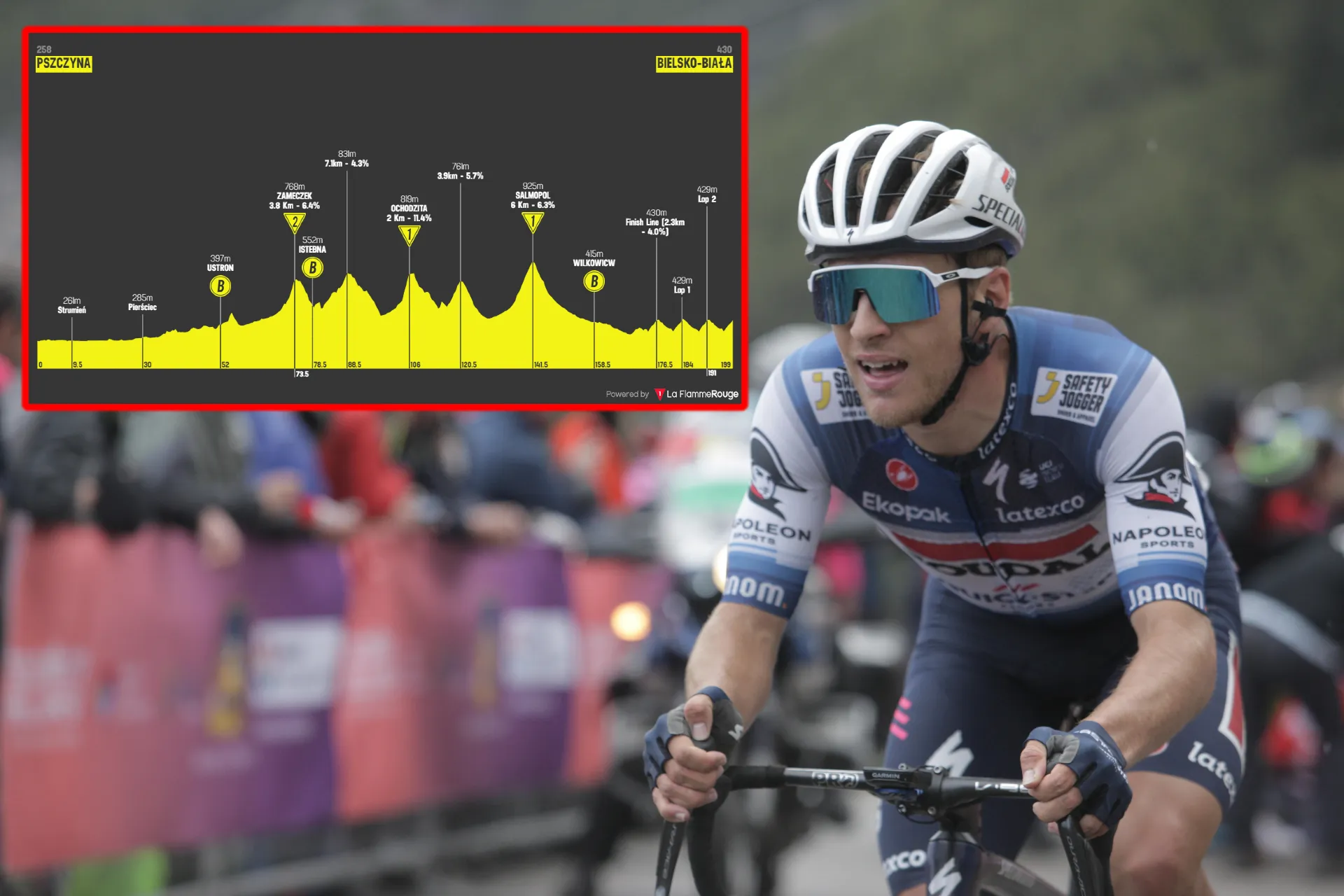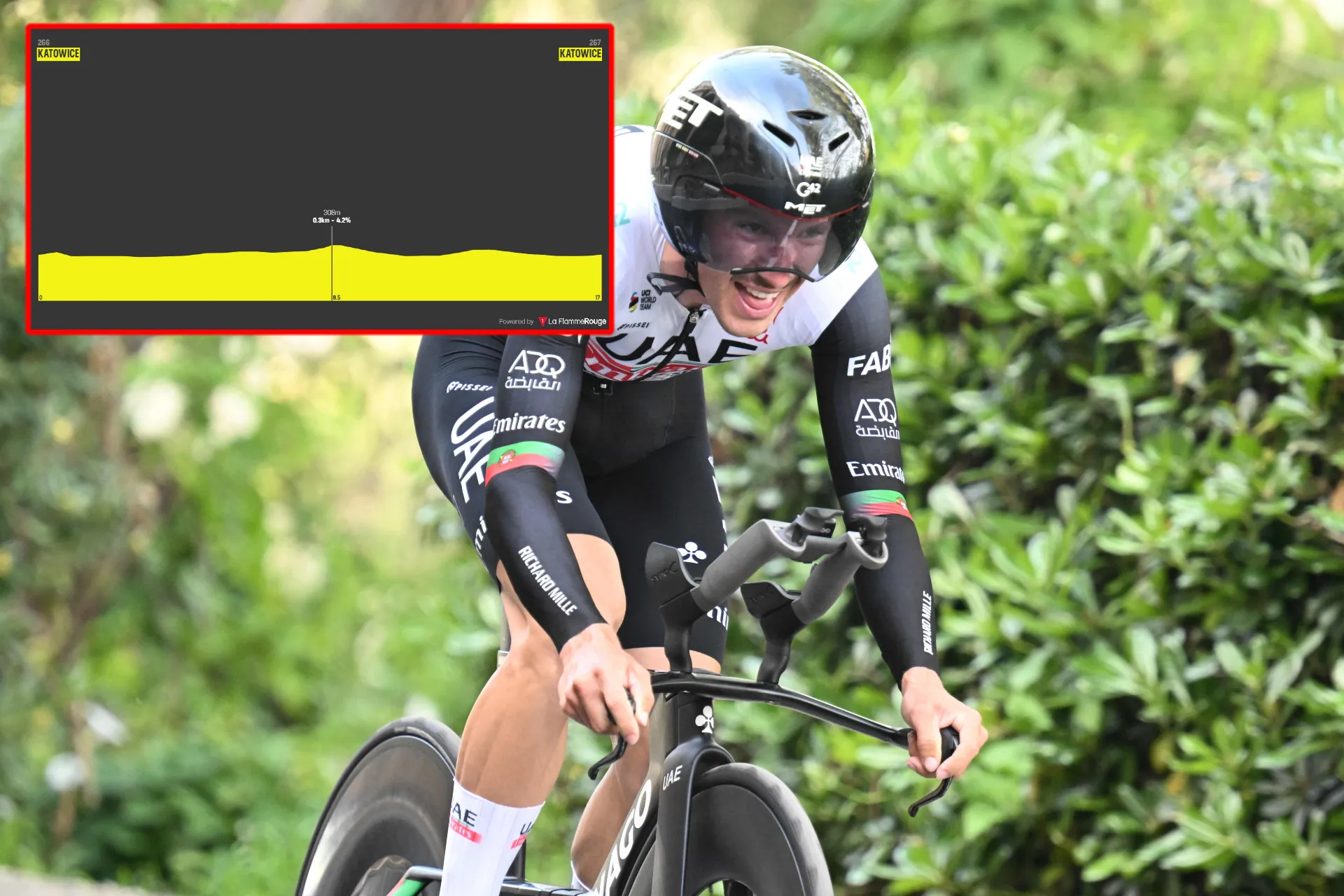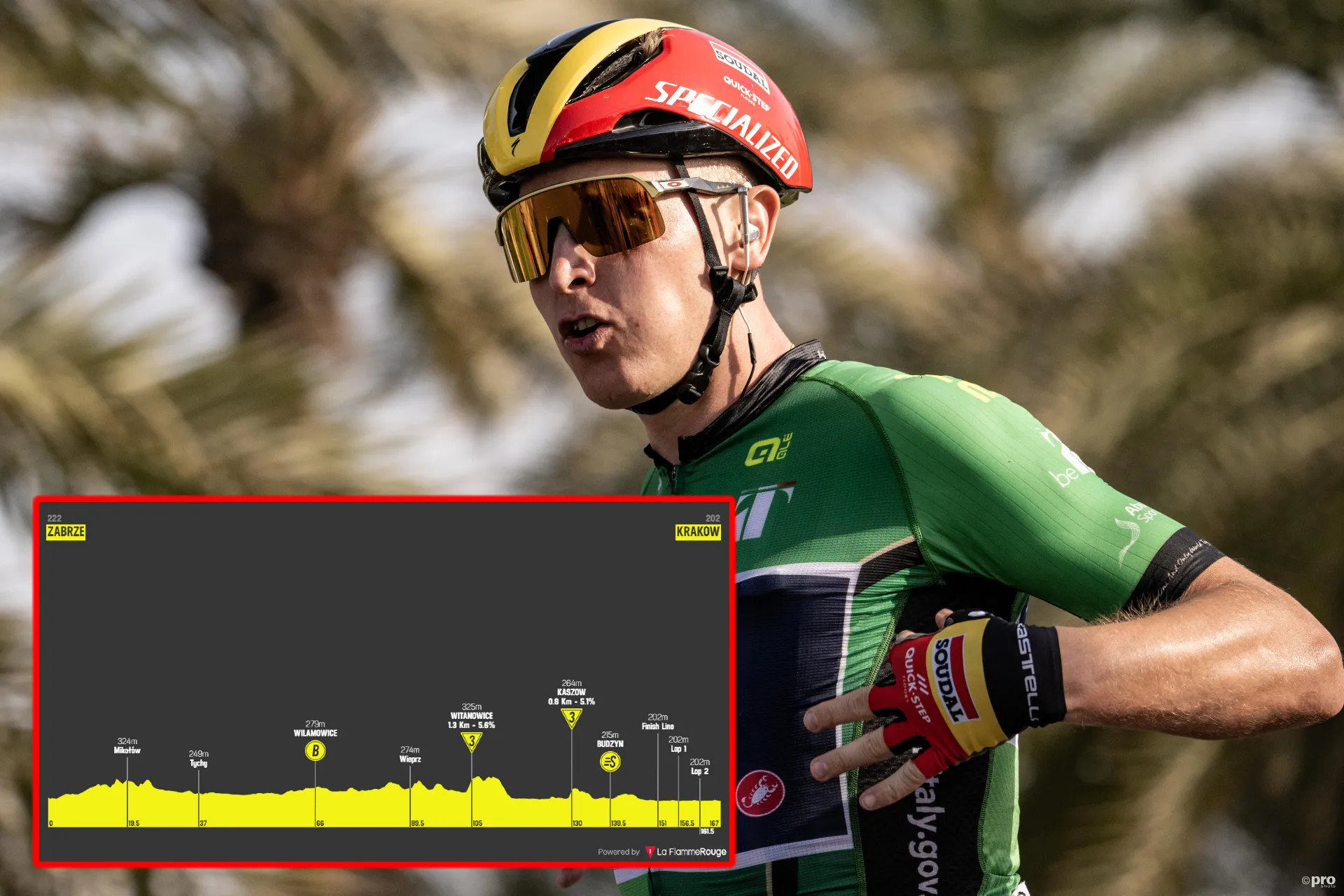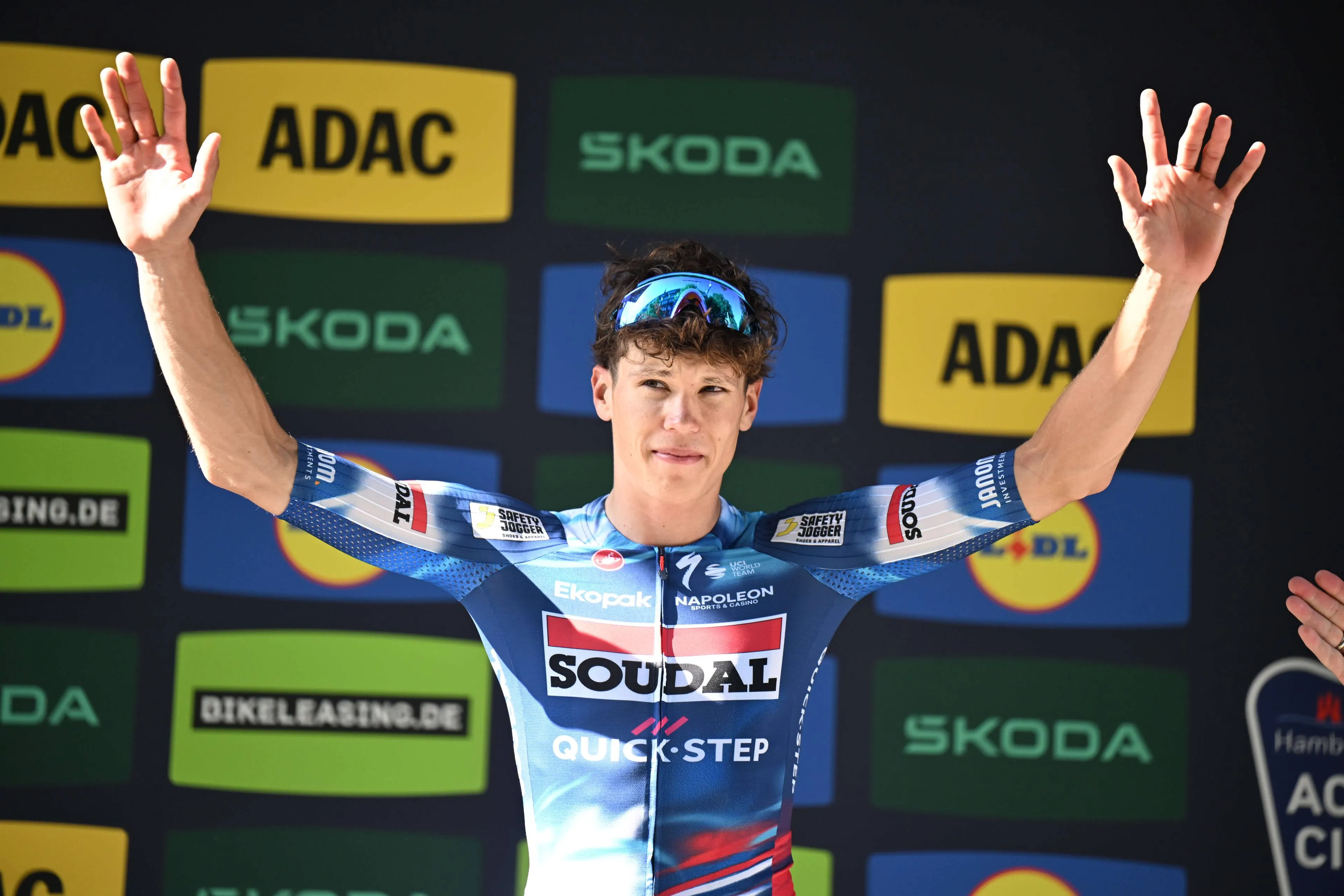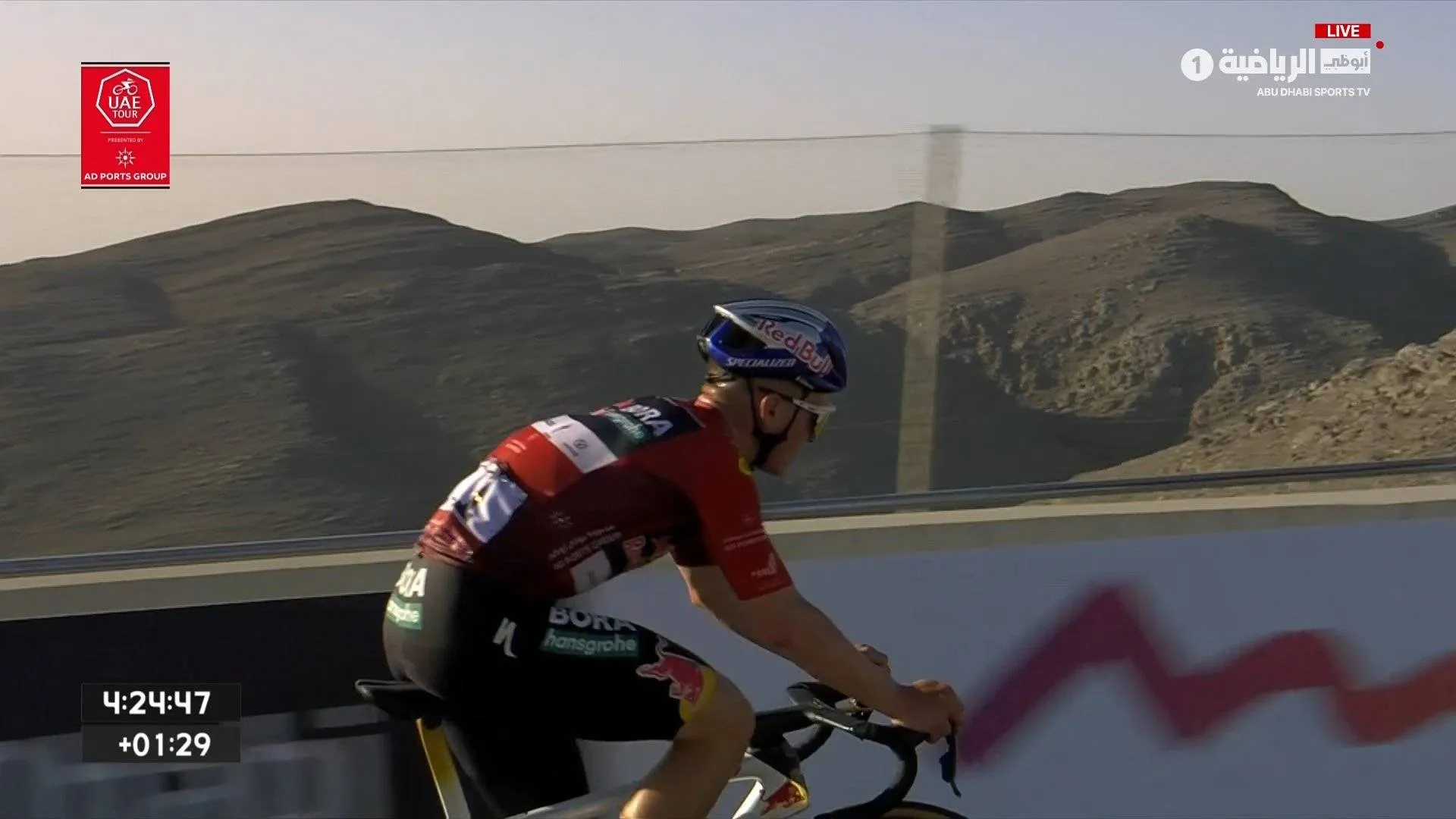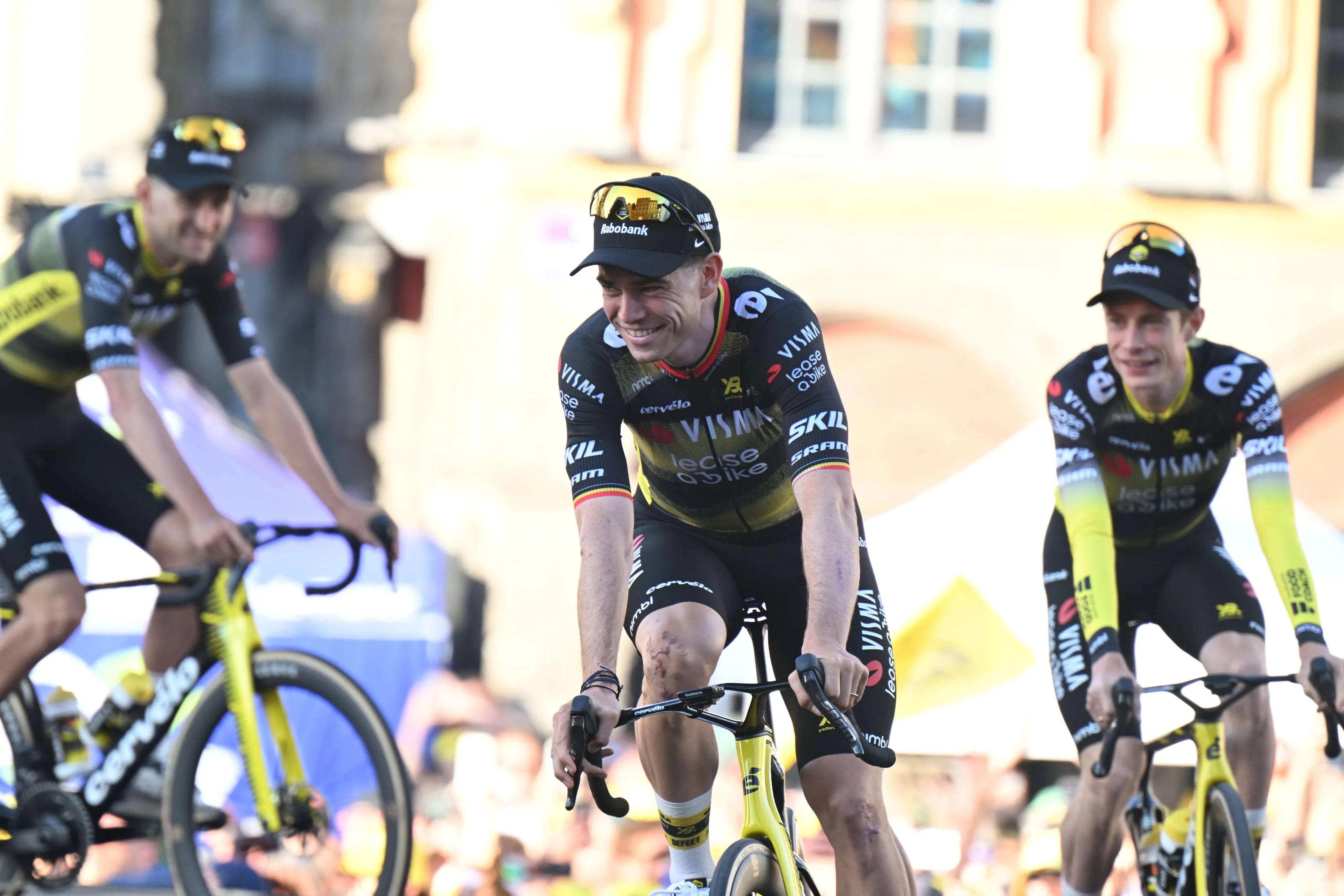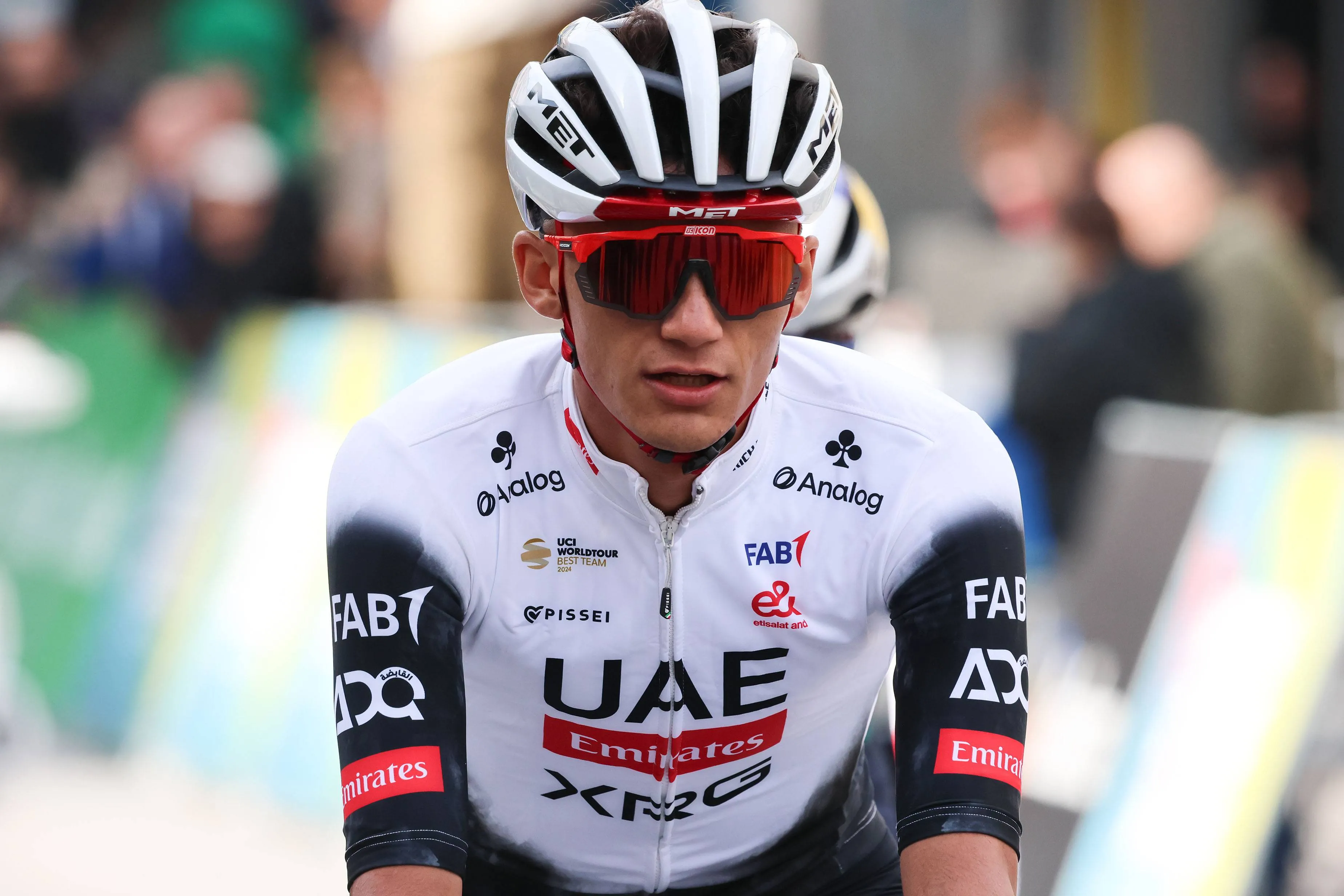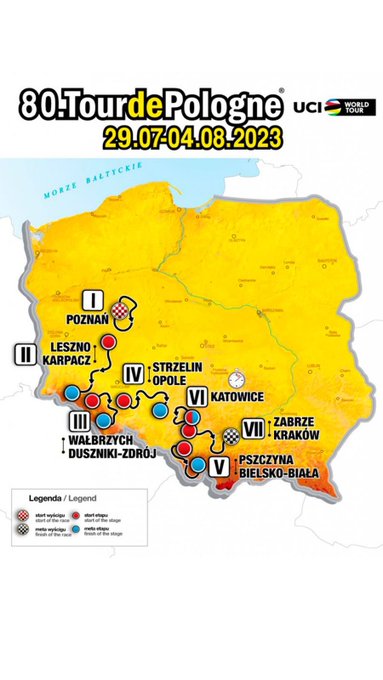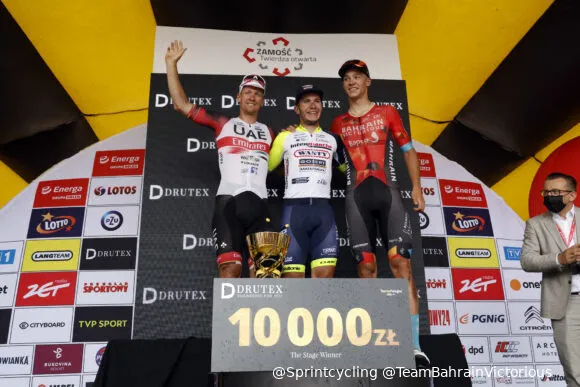
Profiles. From the 30th of July to the 4th of August the Tour de Pologne will be on the road. Right after the Tour de France and right before the World Championships, the Polish race marks an important transition week in a packed section of the season.
The seven-day race features, as every year, opportunities for several riders. Regarding the overall classification it features two hilly days early on where small summit finishes will make small differences, a possible raiding day on stage 5, but the time-trial on stage 6 should be long enough to decide the GC. Sprinter wise stages 1, 4 and 7 will most likely be certain for the fast men to battle for, attracting enough of them to Poland ahead of the World Championships.
Read also
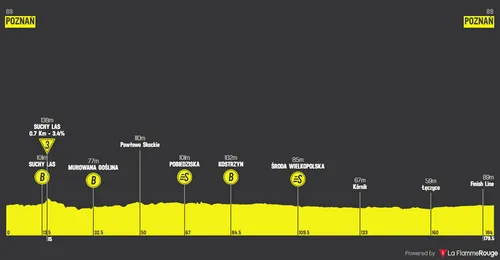
Stage 1: Poznan - Poznan, 183.7 kilometers
The biggest Polish race of the year begins with a pure day for the sprinters. Virtually no climbing in a route that starts and finishes in Poznan, it has 183.7 kilometers on the menu, quite a few intermediate sprints but eventually a bunch sprint seems to be inevitable.
The stage will end at the Tor Poznan, a racing circuit in the outskirts of the city. The riders enter the cicuit and cross the finish line for the first time with 4.5 kilometers to go. The next time coincides with the end of the stage.
In racing circuits as you know, the corners are not technical. It's a circuit made for speeds that the riders won't reach, so despite the several corner in the final kilometers, it's not a technical one. Nevertheless, there will be a slight right-hander with 300 meters to go which could prove decisive in the run-up to the sprint.
Read also

Stage 2: Leszno - Karpacz, 203 kilometer
Stage 2 in Pologne is a day of two very different halves. The 203 kilometers are mostly flat for the first two third of the day, but the race reaches it's southern border and the hilly terrain comes about. It may be the biggest chance to create differences ahead of the time-trial.
There are two categorized climbs in the lead up to the final ascent, they are 3.3 kilometers at 5.7% and 4.8 kilometers at 5.8% respectively. The latter one ends with 20 kilometers to go, all will be a warm-up to the final ascent to Karpacz.
The finish line is in the outskirts of town. It is an inconsistent one, 6.9Km at 5.2%, however there is a very different story when looking at the climb in detail. Inside town the riders find a 1.6Km section at 9.5% and the gradients go up to 15%, nasty ramps which can see explosive attacks and differences. There are a few flat bits, however it will be a difficult run to the line, one where both climbers and puncheurs can ride for the win.
Read also
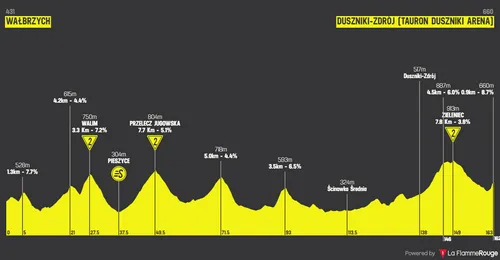
Stage 3: Walbrzych - Duszniki-Zdrój, 162.9 kilometers
The third stage of the race will be a very difficult one. A classic Polish day of racing, and by that of course I am referring to the start and finishing locations which will be the biggest challenge for commentators on the day to pronounce! However riders find a hard day, 300 meters of climbing, a lot focused in the first kilometers. A punchy start and two categorized climbs can see a strong breakaway going up the road, however simultaneously it is very early in the race to see meaningful groups having the freedom to be formed.
The riders don't find much flat terrain however. Even after the two classified ascents (3.3Km at 7.2%; 7.7Km at 5.1%) there are two more ascents where in the peloton some will struggle. Then there will be some rest, but a climb will come closer to the finish where damage will be done. It's 4.5 kilometers long at 6%, again not a brutal one but it will thin down the field, it summits only with 16 kilometers to go - with the KOM sprint a bit later on, and a fast descent into the finishing climb.
With 2 kilometers to go the riders take two tricky corners, there will be a very very fast run-up to that spot, and then it begins to drag uphill. The attacks won't surge there however, but instead in the final 900 meters which average almost 9%. It's a pure anaerobic effort, the toughest gradients of 15% are from 700 to 400 meters to go, the differences can be made there, however one way or another this will suffocate the riders, and the run-up to the line will be a struggle to survive with whichever legs the riders have left.
Read also
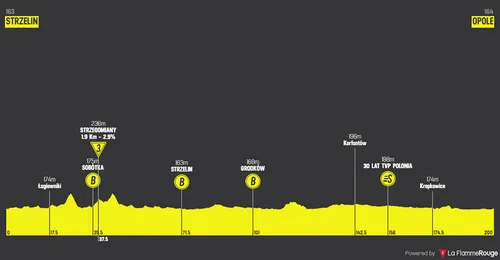
Stage 4: Strzelin - Opole, 199.8 kilometers
A pan-flat day on the fourth day of racing in Poland. There are 850 meters of ascending throughout the day with only a tiny hilltop early in the day to attribute KOM points. Most of the day however is simple in the eastern European plains.
The finale into Opole will be different from the past one, this one in an urban environment - also different from the final day. It will be fast, it will be trecherous. There will be a few smooth turns just before the 1 kilometer to go banner, and a sharp right corner with 500 meters to go. The finishing straight is perfectly straight and flat, ideal for the pure fast men.
Read also
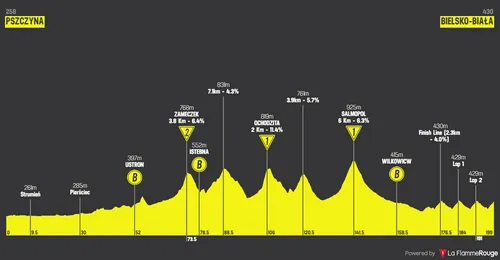
Stage 5: Paszczyna - Bielsko-Biala, 198.6 kilometers
Another 3000 meters of climbing on the fifth day of racing at the Tour de Pologne. The first 60 kilometers are mostly flat, but the stage into the traditional finale into Bielsko-Biala will have a very difficult middle part where a lot can happen. Whether it will or not depend on how the riders decide to play out, in the day before the time-trial and a circuit finish it can be argued that it is not the ideal set of conditions to be a GC day.
Five climbs with descents and virtually no flat roads inbetween. 3.8Km at 6.4%, 7Km at 4.3%, 2Km at 11.4%, 3.9Km at 5.7% and 6Km at 6.3%. They will summit with 125, 110, 92, 78 and 58 kilometers to go. Are they hard enough to create differences? Yes absolutely, specially one which averages 11% and team support matters little. It is terrain where raids and attacks can take place.
If it does, it will be a difficult stage finale with the GC likely to see more attacks on the final circuit. If not, a likely sprint will take place - with the possibility of a late attack succeeding. In Bielsko-Biala the riders will race through the final circuit four times, it ends with a 2.3-kilometer climb at 4%. The circuit is fairly small which lifts the question of what will happen if the race explodes early on and riders are lapped in the city.
Read also
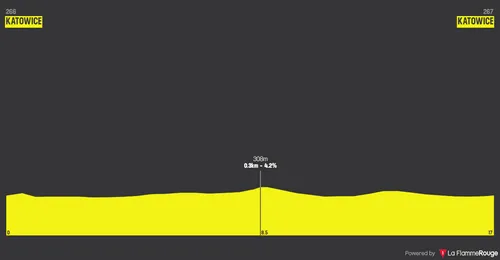
Stage 6 (ITT): Katowice - Katowice, 16.8 kilometers
The most likely decisive stage in this year's race could be the time-trial. Katowice hosts a different type of stage this year, a 16.8-kilometer challenge against the clock but one that promises differences and also an opportunity for the specialists- specially as it comes with one week to the time-trial World Championships.
The route is quite different than what you'd expect from a time-trial. It is mostly flat however technical. Early in the route there are good sections to put down the power, but then the last two third include quite a few sections with breaking and accelerations involved. Quite a few, definitely not a constant effort, it can mix things up on the day.
Read also
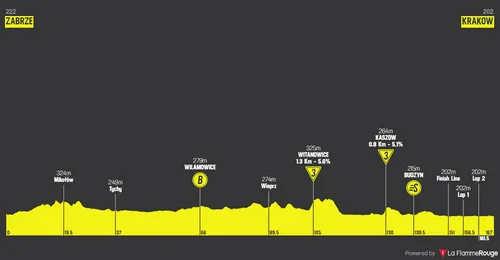
Stage 7: Zabrze - Krakow, 167 kilometers
The final day of racing, the Tour de Pologne reaches Krakow for the traditional finale. It's a day for the sprinters, nothing too complicated or terrain that will split the field up. A pure sprint stage in the making with teams saving their bullets for the final circuit.
Just outside the city center, the roads will be wide and not technical. Around a park, the riders will have a fast run-up to the finish, the final corner with 1.6 kilometers to go, and the final 800 meters completely straightforward.
Read also
claps 0visitors 0
Just in
Popular news
Latest comments
- Fantastic climb by Tiberi. Let’s see more of this from him.Pedalmasher19-02-2026
- Loved watching this finale. Brutal climb, looked like a brand new Middle Eastern Alpe d'Huez with those switchbacks on the mountain edge. So much grit on Del Toro's face. I really thought he might catch Tiberi with about 1500m to go. Great stage.antipodeanpedalfan19-02-2026
- You’re expecting cycling to stay immune from this type of conjecture when the worlds’ most watched and listened to figure spouts out similar unsubstantiated crap daily? Most people just follow bad example because it’s a lot easier than figuring out a good one. Anyway, it could be anything, perhaps he just knew Andrew too well, or Sir Jim didn’t want him helping any more of those pesky foreigners and paid him off ;-) He doesn’t seem the Epstein type but if that was it, kudos to him for being practically the only one to resign BEFORE being found out. I find it very concerning that no-one has much to say about any of these people who keep at it until they just can no longer claim their innocence. Who did they learn from, Lance?Mistermaumau19-02-2026
- If you are going to make comments like that, back it up with proof. Otherwise keep them to yourself.Searider18-02-2026
- In the same place as the outcry over boys vs girls losing weight, which, is in about the same place as boys vs girls getting hit, or abused.Mistermaumau18-02-2026
- Haha.awp18-02-2026
- That's a little extreme, you take wins where you can get them.awp18-02-2026
- Ironic no, a British boss of British companies has no problem outsourcing a large proportion of jobs to foreigners and then complains a proportion of that proportion actually lives in the country. And do you expect if you leave that no-one will take your spot?Mistermaumau18-02-2026
- Slowly slowly the youngsters are making more and more of an impact.Mistermaumau18-02-2026
- I agree for certain situations, especially camps and popular training destinations but teams can’t manage or afford to chaperone all their riders all the time. Off season they still have to train and want to be home as much as they can (this is also where they are easiest to « catch »). On the other hand, if riders like Tadej accept « invitations » to ride on certain roads just for promotional purposes like in Gran Canaria they are also responsible for any trouble it attracts, you can’t expect people to stay away once you deliberately notify where you’re going to be and when. SeemsMistermaumau18-02-2026
Loading
🇵🇱 Tak prezentuje się mapa 80. Tour de Pologne UCI WorldTour! To będzie naprawdę wyjątkowa edycja. 🇵🇱🚴 🇬🇧 This is the map of the 80th Tour de Pologne UCI WorldTour! This is going to be a really special edition. 🇵🇱🚴 — #TdP2023
Write a comment
